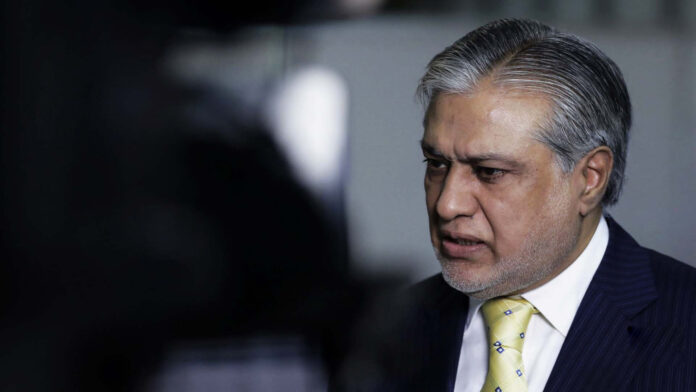During a recent seminar organized by the Pakistan-China Institute titled “China At 75 and Its Progress,” Pakistan’s Deputy Prime Minister Ishaq Dar voiced strong opposition to a free-floating exchange rate regime, advocating instead for a stable rupee value based on the Real Effective Exchange Rate (REER).
Dar argued that maintaining the rupee between Rs 235 and Rs 240 to the dollar aligns with Pakistan’s economic fundamentals and prevents undue stress on the majority of the economy that does not engage in export activities.
Addressing the forum, Dar highlighted that the concept of a depreciating exchange rate benefiting exports is a myth, as it harms 92% of the economy that is domestically oriented. He criticized the previous government’s policies, which he claimed led to higher inflation and economic instability.
According to Dar, the artificial devaluation of the rupee to Rs 278 against the dollar was exacerbating inflation and increasing the burden of external debt.
The Deputy Prime Minister also discussed the central bank’s current monetary policy, suggesting that the significant disparity between the policy rate of 17.5% and the current inflation rate of 6.9% sets the stage for a rate cut in the upcoming Monetary Policy Committee meeting. He reiterated his long-standing view that Pakistan would not default on its external debt, contrasting the national debt-to-GDP ratios with those of other major economies like the US, UK, and Japan.
In his speech, Dar also touched upon the broader impacts of economic policies on inflation and public welfare. He criticized the International Monetary Fund’s (IMF) insistence on exchange rate flexibility, which he believes has not benefitted Pakistan historically. According to Dar, the IMF’s approach undermines domestic economic stability by favoring export sectors that constitute a small portion of the economy at the expense of the wider public.
Furthermore, Dar highlighted Pakistan’s economic resilience, noting recent improvements in exports and foreign remittances. He expressed optimism about future interest rate reductions due to slowing inflation, providing relief to an economy still facing significant challenges.
The seminar also featured remarks from the Chinese Ambassador to Pakistan, Jiang Zaidong, who acknowledged Pakistan’s economic progress and reduced inflation over the past two years, signifying a positive trajectory for the country’s financial stability.




